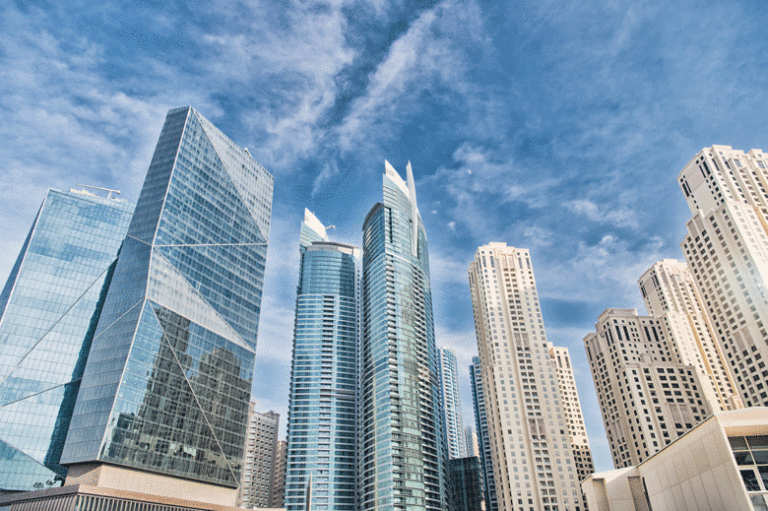Focus turns to infrastructure as Dubai curtails real estate plans

The speed at which the government has moved to control supply has left construction firms in the emirate wondering where new work will come from
Dubai’s construction sector has been turbocharged by a heady cocktail of real estate and off-plan property sales since 2003.
Following the global financial crisis in 2008, the market stalled for about three years, but picked up in 2012 and since then construction companies in the emirate have again been busy building real estate.
 This momentum meant that, unlike the rest of the region, which experienced a sharp decline in project activity after the 2014 oil price drop, Dubai’s projects market remained robust with a steady stream of contract awards.
This momentum meant that, unlike the rest of the region, which experienced a sharp decline in project activity after the 2014 oil price drop, Dubai’s projects market remained robust with a steady stream of contract awards.
By 2017, it was apparent to many that the market was becoming oversupplied with residential real estate as well as other assets such as shopping malls.
While that view was not universally held, the issue is now being confronted head on thanks to an announcement in late August by UAE Vice-President and Prime Minister and Ruler of Dubai Sheikh Mohammed bin Rashid al-Maktoum, who said the UAE needs to adjust the pace of projects to ensure real estate supply and demand remains balanced.
Planning committee created
The impact of Sheikh Mohammed’s statement was almost immediate with the formation of a committee for real estate planning headed by Deputy Ruler Maktoum bin Mohammed al-Maktoum. It includes representatives from Dubai’s leading developers and has been tasked with balancing supply and demand.
With Dubai and its developers committed to completing projects that have already been launched and sold, the expectation is that the new committee will focus on curbing the launch of new projects.
Developers had already refrained from launching new projects at Dubai’s annual Cityscape real estate and investment event in late September. This restraint will make the committee’s job of balancing supply and demand easier, but it does leave the emirate’s construction sector wondering where future work will come from.
“The market is very quiet at the moment,” says a leading contractor in Dubai. “For the first time in five years, there are no major new tenders coming out and while we are okay for work until next year, this is a long-term concern.”
Expo work drying up
According to regional projects tracker MEED Projects, the total value of awards in Dubai across all sectors during the third quarter of this year dropped to $1.9bn, the first time it has dropped below $2bn since the third quarter of 2012.
The problem for contractors is exacerbated by the construction work for Expo 2020 finishing next year. Since 2016, there has been a string of major contract awards for construction projects at the site and supporting infrastructure. Some $6.5bn of ongoing construction work at the Expo site will be completed by the middle of next year, ahead of the start of the event on 20 October 2020. As the event opening draws closer, new contract awards for the Expo will stop.
Construction is a major component of Dubai’s economy and statistics on its contribution tend to downplay its importance. This is because other sectors are indirectly reliant on construction activity. For example, many products manufactured in the emirate are used exclusively by the construction sector and, in the service sectors, numerous professions, including lawyers, depend on the work generated by the construction industry.
The hope is that the emirate’s leadership will continue to invest in infrastructure projects to support economic growth, and if that is the case, then the question is which schemes will go ahead?
Al-Maktoum airport expansion
The largest upcoming project by far is the $33bn expansion of Al-Maktoum International airport. With major real estate projects such as the world’s tallest structure, The Tower at Dubai Creek Harbour, looking unlikely to proceed, the airport scheme will now be the bellwether project for Dubai’s construction sector over the coming years.
The expansion has been planned for years, and last year Dubai confirmed that it had moved the target opening date for the first phase from 2025 to 2030.

Although the delivery programme has been prolonged, work on the project is progressing on site with the enabling works package awarded to the local Tristar in June 2018.
At the end of last year, the next package, the $2.7bn substructure contract for Concourse 1 and the West Terminal Building, was tendered. Bids were submitted by contractors earlier this year and the project client, Dubai Aviation Engineering Projects (DAEP), expects to award the contract imminently.
The substructure package is the largest contract to be tendered for the expansion of Al-Maktoum International airport. It is also the largest construction contract to be tendered in Dubai this year and is of pivotal importance for the future of the emirate’s construction sector.
If the contract is awarded, it will not only create work for the winning contractor, but will also catalyse the ongoing development of Dubai South and the area surrounding the expo site.
Conversely, if the tender is cancelled or delayed then it will further undermine the already fragile confidence in Dubai’s construction sector.


